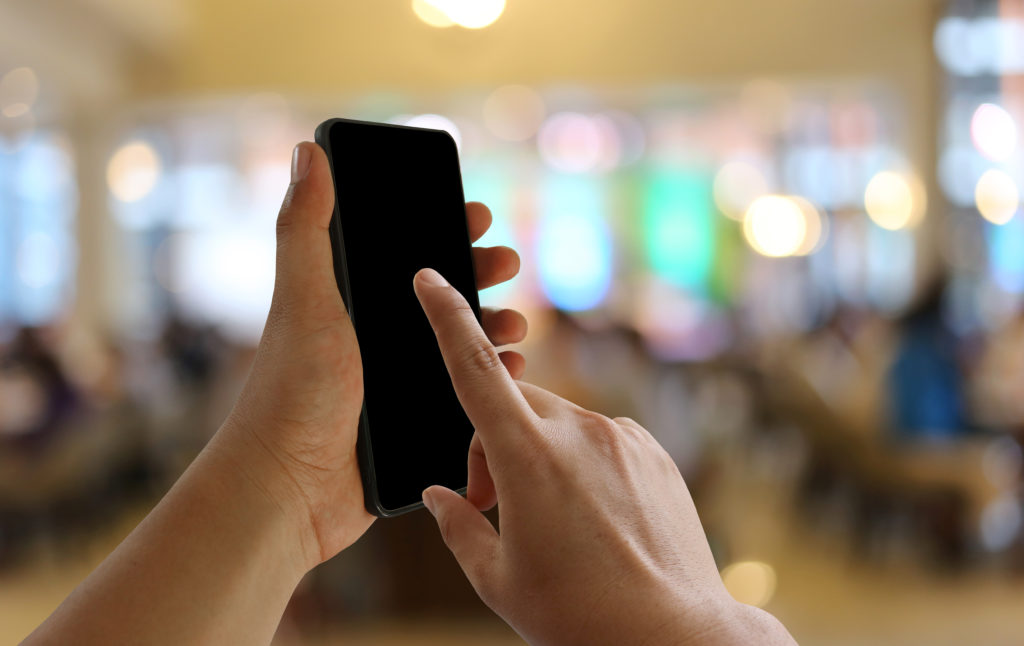
So much has been said about smartphone usage in modern times. This ranges from some who say that they are destroying our brain to others who see they benefit our cognition by outsourcing cognitive heavy tasks like remembering lists of phone numbers – thereby freeing up memory storage for other stuff.
A bunch of research does point to there being connections between smartphone usage and a decrease in wellbeing and this is what researchers at Ruhr-University Bochum wanted to know more about.
They recruited 619 people and they were randomly assigned to three groups.
-
- One group abstained from any smartphone usage for 7 days.
- The second group reduced their smartphone usage by one hour per day.
- The third group carried on as usual.
The then followed up one month and four months later checking with continued smartphone usage and health and wellbeing questions also. What did they find?
Those who reduced smartphone usage had better health and well-being, including external measures such as how much they exercised or smoked. This effect could be measured after four months. However, what was interesting was that the group that reduced smartphone usage rather than abstained showed the largest and most stable results.
So, it appears that there is a sweet spot and reducing smartphone usage only, is the best strategy for higher health and well-being!
Reference:
Julia Brailovskaia, Jasmin Delveaux, Julia John, Vanessa Wicker, Alina Noveski, Seokyoung Kim, Holger Schillack, Jürgen Margraf.
Finding the “sweet spot” of smartphone use: Reduction or abstinence to increase well-being and healthy lifestyle?! An experimental intervention study..
Journal of Experimental Psychology: Applied, 2022
DOI: 10.1037/xap0000430
More Quick Hits
Why it pays for companies to help workers have a good day in the office
usiness and executives in those businesses are more than keen to get a competitive advantage. To this end they invest heavily in technology and getting the right people to do the job. But, I am sure, we are all more than aware that the work...
Vaccination to Keep Your Memory?
Quick HitsDaily brief research updates from the cognitive sciences ho wouldn’t want to keep their memory when aging?! Well, researchers have just announced some promising results in mice enabling them to keep their memories and avoid some of...
Can Having More Children Reduce Cognitive Functioning?
Quick HitsDaily brief research updates from the cognitive sciences aving more children and late life cognition is not something that is generally researched. There are more obvious avenues such as diet, education, exercise, or socio-economic...
How Sleep Helps Your Brain Manage Fear
Quick HitsDaily brief research updates from the cognitive sciences leep on i” is common advice for many reasons. Often to consolidate thoughts and help boost creativity. This is a well-known effect. We also know that sleep is the time that helps to...
Video games can boost children’s intelligence
Quick HitsDaily brief research updates from the cognitive sciences ell, this is not the answer many of us would expect, and it goes against other logic of spending more time doing other things such as reading or socialising with friends...
Just how many people get COVID brain?
Quick HitsDaily brief research updates from the cognitive sciences here are many questions still open about COVID and the brain. There is no doubt that long COVID exists, and this can have dramatic impacts on people’s lives. But just how...
Brain networks and losing weight – successfully or not
Quick HitsDaily brief research updates from the cognitive sciences s weight loss all in the mind? Well, with the danger of oversimplifying a complex topic, this latest research shows it is, and shows precisely how and with what networks. So,...
Reversing aging – with poo!
Quick HitsDaily brief research updates from the cognitive sciences ho wouldn't want to age better - well the results of an unsual study are in and the results are promising and may make many of you who are aging prick up your ears. The...
Brisk walking slows biological aging
Quick HitsDaily brief research updates from the cognitive sciences f you want to age better, then walk quicker, or those who walk quicker, age slower. That is the result of a recent study of 400,000 UK adults mapped to genetic markers of age...
Learning at double-speed?
Quick HitsDaily brief research updates from the cognitive sciences ouldn’t it be great if we could learn things double speed? Well, maybe we can. At least according to a study out of the University of California. During the pandemic many...










